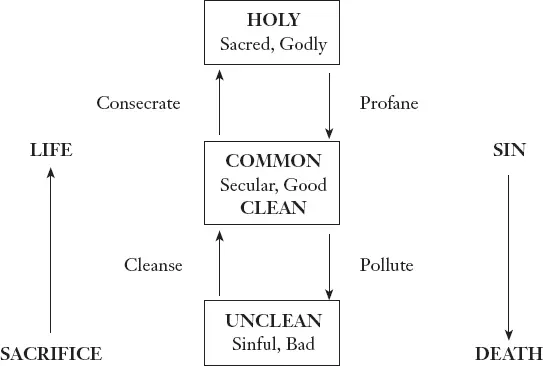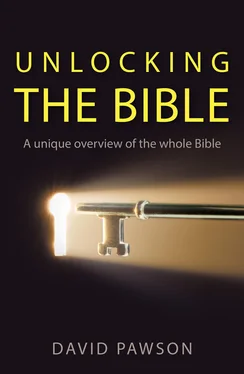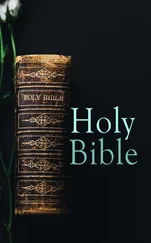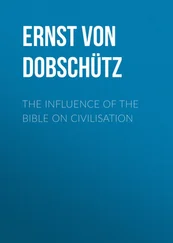Worship calendar
As well as bringing offerings to God, the Jews had a calendar of worship to observe. There is no corresponding Christian calendar in the New Testament, no instructions about observing Christmas or Easter, but for the Jewish people a calendar was a vital part of their walk with God. They were being treated as children: adults do not need a calendar but children do, to remind them of things they would otherwise forget. Various types of feast are mentioned in Leviticus, and all had to be kept.
ANNUAL FEASTS
The calendar began in the first month of the year, which is roughly our March/April, with Passover, the Feast of Unleavened Bread. This took place on the fifteenth day of the first month, to remember how God brought the Israelites out of slavery in Egypt. On the day before the Passover began, a lamb had to be killed at 3.00 p.m.
Three days later (i.e. three days after the slaughter of the lamb) they had to offer the Firstfruits of the harvest to God. It is not difficult to discern the similarities in pattern with Jesus’ death and resurrection.
Fifty days after that they were to hold the Feast of Pentecost (pente meaning ‘50’), or the Feast of Weeks. This was the day that the law was given on Sinai. They were to remember this and give thanks for it. When the law was given at Sinai on the very first Pentecost, 3,000 people were put to death because of their sin. Centuries later, when the Spirit was given at Pentecost, 3,000 were saved.
Next come the feasts towards the end of the year (the ‘seventh month’, or our September/October). At the Feast of Trumpets, the shofar, the old ram’s horn, was blown. This signalled a whole new round of feasts.
Then came the Day of Atonement, the crucial day when the scapegoat was pushed out of the camp with all the sins of the people on its head.
The Feast of Tabernacles (also known as the Feast of Succoth) came after that, lasting eight days. For this feast they moved out of their houses and lived in shelters. They had to be able to see the stars through the roof to remind them of their 40 years of foolish wandering in the wilderness when they could have reached the Promised Land in just 11 days.
All these feasts will be fulfilled in a Christian way. The first three have already been fulfilled in the first coming of Jesus. The second three will be fulfilled at his second coming. We cannot know the year that Jesus will return, but we do know that it will be around September/October, because he always does things on time. Indeed, this was the time when he was born: the evidence in Luke’s Gospel points to the seventh month of the year, which corresponds to the Feast of Tabernacles. This is when the Jews expect the Messiah. Every time a trumpet is mentioned in the New Testament it is to announce his coming. When that happens, the last three feasts will be fulfilled, and on that Day of Atonement redemption will come to the whole nation of Israel.
WEEKLY HOLY DAY
In addition to the annual festivals, there was also to be a weekly rest, a particular blessing for people who had been slaves in Egypt. There is no trace of the Sabbath in the Bible before Moses. Both Adam and Abraham, for example, had no Sabbath day: they worked seven days a week. Moses introduced this weekly day of rest. It was not to be a holiday or a family day but a day for God, a holy day, and this was part of their calendar.
JUBILEE
But there were not only annual and weekly festivals – there was also to be a festival every 50 years, known as the Jubilee. Every 50 years everybody’s bank balance was levelled up, debts were cancelled and all the property reverted to the family who originally owned it. So the leases would get cheaper the closer you came to the fiftieth year. Slaves were also set free in the jubilee year. Thus people looked forward to the jubilee, known also as ‘the acceptable year of the Lord’. It was good news for the poor because they would be rich again, and it was a time when captives would be set at liberty.
Jesus proclaimed in Nazareth: ‘The Spirit of the Lord is on me … to preach good news to the poor … to proclaim freedom for the prisoners … to proclaim the year of the Lord’s favour.’ In other words, Jesus began the real jubilee to which every one of these people had been looking forward. Once again the Old Testament is needed to understand the New.
Rules for living
Clean and unclean
A crucial area to understand in Leviticus concerns the distinctions between holy and common, clean and unclean. Most people think in terms of good and bad, but the Bible works with three categories, as the chart shows. *

There are two processes going on. The first process is when sacred, godly, holy things are profaned and become common. You can spoil a holy thing by making it common. When the Bible Society sent Bibles to Romania, the communist government allowed the pages to be used in toilet rolls. It sparked a revolution started by Christians who were scandalized by this action. What had happened in that situation according to the teaching of Leviticus? In using the Bible for such a mundane though necessary purpose, a holy thing had been made common. The second process is when a common, clean thing is made unclean and sinful.
The three words sacred, secular and sinful correspond roughly to these divisions of holy, clean and common, and unclean. Just as there is a process of profaning the holy to make it common, and polluting the common and clean to make it unclean, so there is a process of redeeming this situation. You can cleanse the unclean and make it clean, then you can consecrate it and it becomes holy.
What is holy and what is unclean must never come into contact. They must be kept rigidly apart. Things holy and things unclean have nothing in common. If there is a mixture of unclean and clean it will make both unclean. Similarly, if you mix holy and common things, that makes them all common – it does not make them all holy.
Hence the downward process shown on the chart leads to death, quite literally, whereas the upward process leads to life – but this involves sacrifice. Only by sacrifice can you cleanse what is unclean and bring it to life.
This has ramifications for our view of life. According to the Bible our work can be consecrated to God. Work can be any of these three things, holy, clean or unclean. There are some jobs that are illegal and immoral, which are therefore unclean. A Christian should not be in them. There are other jobs that are clean, but common. But you can consecrate your work and do it for the Lord, and then it ceases to be common – it becomes a holy vocation in the Lord. So it is possible for a printer to be doing holy work, just as it is possible for a missionary to do only common work. Your money can be unclean if it is spent on bad things, clean if it is spent on good things, or holy if it is consecrated to the Lord. Sex, too, can be any one of these three things.
Plenty of people are living decent, common, clean lives, but they are not holy people. God does not want us just to be living good lives: he wants us to be living holy lives. This is the emphasis in Leviticus.
Those outside the Church may claim that they can live lives as good as the lives of those within it, but they are not the holy people God is looking for.
Holy living
Living holy lives involves all kinds of very practical things.
 The health of the body is just as important to holiness as the health of the spirit. What we do with our bodies does matter if we want to be holy to the Lord. Leviticus has instructions about haircuts, tattoos and men wearing earrings, as well as regulations on male and female bodily discharges and childbirth.
The health of the body is just as important to holiness as the health of the spirit. What we do with our bodies does matter if we want to be holy to the Lord. Leviticus has instructions about haircuts, tattoos and men wearing earrings, as well as regulations on male and female bodily discharges and childbirth.
Читать дальше


 The health of the body is just as important to holiness as the health of the spirit. What we do with our bodies does matter if we want to be holy to the Lord. Leviticus has instructions about haircuts, tattoos and men wearing earrings, as well as regulations on male and female bodily discharges and childbirth.
The health of the body is just as important to holiness as the health of the spirit. What we do with our bodies does matter if we want to be holy to the Lord. Leviticus has instructions about haircuts, tattoos and men wearing earrings, as well as regulations on male and female bodily discharges and childbirth.









